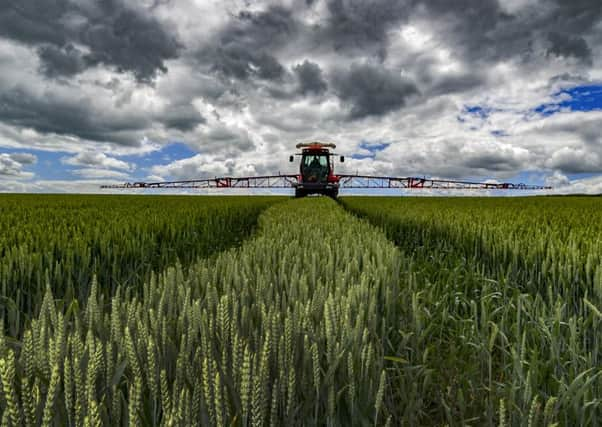Anne McIntosh: Farming must be priority as we reap Brexit's harvest


There is a new team in place, combining experience and continuity in the Farming Minister George Eustice and Lord Gardiner, as well as freshness in Andrea Leadsom as Environment Secretary and Heather Wheeler as Environment Minister. What is unclear is what the role of Defra will be. Historically, much of the department’s work springs from Brussels, such as the Common Agricultural Policy and environmental regulations.
In the past, Defra and indeed other government departments have embellished and gold-plated what has been agreed by EU member states, damaging the interests of our farmers and producers and making them less competitive.
Advertisement
Hide AdAdvertisement
Hide AdThere is no reason to believe that such regulations will cease but they will become entirely UK ones. I am thinking for example of the unilateral sow stall and tether ban in the early 90s which clobbered our pig producers and perversely led to the Yorkshire housewife buying Danish or Polish pork.
Historically food prices have remained low, meaning challenging farm gate prices for producers. It is generally agreed that food prices might well rise unless we can tempt consumers to choose more local produce and persuade our existing EU partners to continue to take our farm goods. Will France continue to import our spring lambs, or will they take Irish or New Zealand ones instead?
The importance of the food and farming sector to the economy is huge. British farming provides 61 per cent of the food we eat. It is the bedrock of the food industry – the UK’s largest manufacturing sector. Food and drink account for 16 per cent of the total manufacturing sector, turning over £83.7 billion per annum and employing around 400,000 people.
All of this hangs in the balance and depends on the outcome of the negotiations. There are lots of unanswered questions. It is not clear as yet whether farming negotiations for Brexit will be led by Defra or the new Department For Exiting The EU, while presumably future trade relations will be conducted by another new Department of International Trade.
Advertisement
Hide AdAdvertisement
Hide AdThe status of the thousands of migrant workers who work in the fields and factories, picking and packing and processing foods on a seasonal basis, needs to be assured as a matter of urgency. There is not an obvious substitute for these workers from either the UK or the Commonwealth.
The previous seasonal workers scheme was administratively difficult to achieve, whole free movement of labour has greatly facilitated the flow of workers. Farmers currently benefit from the revised CAP although payments have been heavily delayed through the difficult encountered by the Rural Payments Agency.
A number of immediate issues arise. EU Farm Commissioner Phil Hogan is planning a major review of the current CAP in 2017. Will Yorkshire farmers still be represented? Will the British Presidency of the EU Council of Ministers proceed?
Defra needs to give an assurance that all contracts to deliver countryside stewardship programmes will run until the end of the contractual term.
Advertisement
Hide AdAdvertisement
Hide AdIn fact, farmers need to know that all basic farm payments under the scheme will remain at present levels until the end of 2020.
These are serious commitments being sought from the UK Government and come with a cost. There remains a general question as to what level of support, if any, will continue, from which budget it will come and who the beneficiaries will be.
The current focus of the Common Agricultural Policy has been on the active farmers and in my view, that should remain a priority.
I would also make the case that support should go to natural flood defence schemes such as the Pickering Pilot Project, where farmers can temporarily store water for the good of the local community. They should be rewarded for doing so.
Advertisement
Hide AdAdvertisement
Hide AdThe nature of our future relationship with our existing partners is also unclear. We must be mindful of the fact that extricating ourselves from the European Union will be much like a divorce. The main difference is there are 27 injured parties not just one.
The alternatives will not deliver anything approaching the benefits farmers currently enjoy. Like any other business, farmers crave certainty to enable them to make their long term plans.
Yet for the moment, the only certainty is that there will be a degree of uncertainty for months to come. The Government must try and limit that uncertainty to the best of its ability.